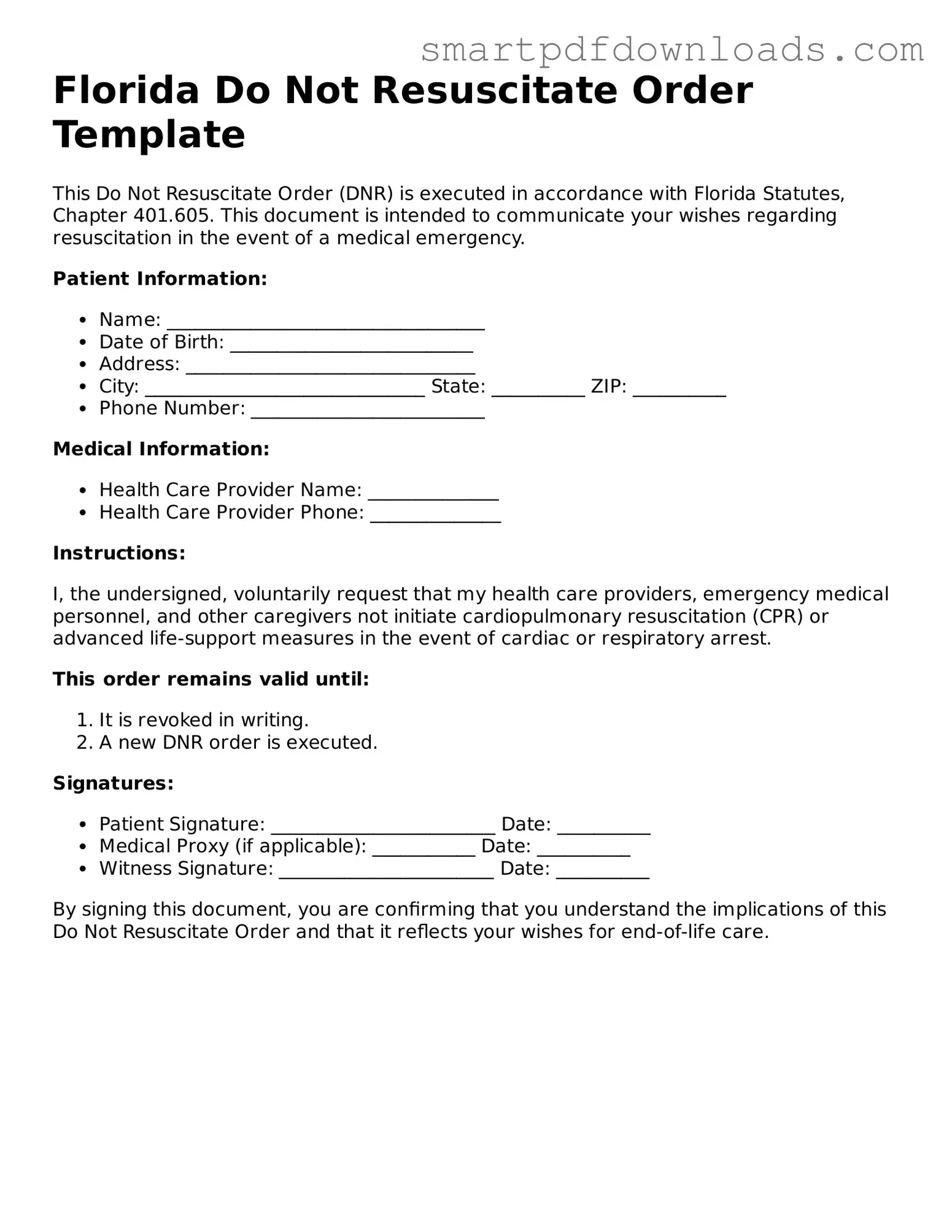Legal Do Not Resuscitate Order Form for the State of Florida
A Florida Do Not Resuscitate Order (DNRO) is a legal document that allows individuals to refuse resuscitation efforts in the event of a medical emergency. This form serves to communicate a person's wishes regarding life-sustaining treatment to healthcare providers. Understanding the implications of a DNRO is essential for anyone considering their end-of-life care options.
Edit Do Not Resuscitate Order Online

Legal Do Not Resuscitate Order Form for the State of Florida
Edit Do Not Resuscitate Order Online

Edit Do Not Resuscitate Order Online
or
⇓ PDF File
Finish the form and move on
Edit Do Not Resuscitate Order online fast, without printing.